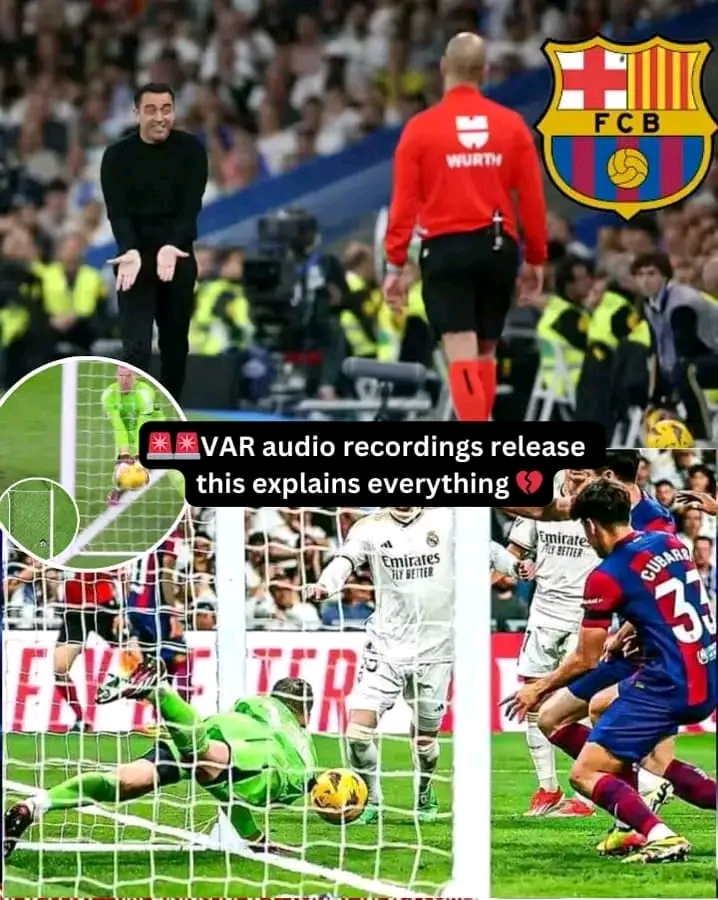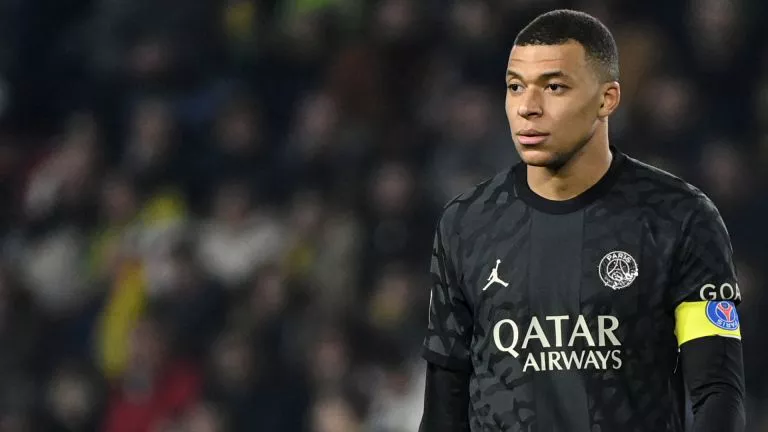The audio recordings that have emerged from the VAR booth during the much-anticipated clash between Real Madrid and Barcelona on Sunday
At the heart of the matter is the disallowed goal of Lamine Yamal, a moment that has drawn considerable attention and raised eyebrows among fans and officials alike. As tensions ran high at the Santiago Bernabéu stadium, Barcelona supporters and officials were left seething as they felt a legitimate goal was unfairly denied. The incident unfolded when Lamine attempted a flick-on near the front post, only to be thwarted by a crucial save from Real Madrid’s goalkeeper, Andriy Lunin.
However, in the absence of goal-line technology to definitively ascertain whether the ball had completely crossed the line, the decision was deferred to the VAR team for a comprehensive review.
The subsequent scrutiny involved an in-depth analysis of Lunin’s positioning and the trajectory of the ball by VAR officials, who meticulously combed through the available footage to arrive at a verdict.
Despite the painstaking efforts and the intense scrutiny, the VAR team ultimately determined that there was insufficient evidence to conclusively establish that the ball had indeed crossed the goal-line entirely. This ruling ignited a firestorm of protest from Barcelona’s camp, with head coach Xavi vehemently voicing his belief that his team had been unjustly deprived of a goal-scoring opportunity.
Responding to escalating demands for transparency and accountability, the Royal Spanish Football Federation (RFEF) released the audio recordings from the VAR booth, granting an unprecedented peek into the decision-making process.
The discussions captured in these recordings shed light on a methodical and deliberate approach adopted by the officials in assessing the situation. Every angle and piece of evidence available was meticulously considered, with linesmen and VAR officials engaging in a detailed dialogue to weigh the merits of the incident.
Despite the gravity of the decision at hand, the officials remained resolute in their commitment to conducting a thorough and accurate assessment before arriving at a final decision.
Ultimately, the culmination of their analysis led them to uphold the on-field decision, citing a lack of conclusive evidence to overturn the referee’s call. This decision meant that the game resumed with a corner kick, much to the dismay of Barcelona and their supporters.
The public release of the VAR audio recordings sparked an intense wave of discussion and debate within the football community. Fans, pundits, and experts delved deep into the conversations, dissecting the officials’ decisions and scrutinizing the process with a fine-tooth comb.
While opinions may vary on the outcome of the VAR review, one undeniable truth remains—the use of technology in football officiating continues to be a hotly debated topic. Each decision made through such technological interventions carries significant implications not just for the outcome of matches but also for the overall integrity and fairness of the sport, fueling ongoing debates and discussions around its efficacy and impact.



